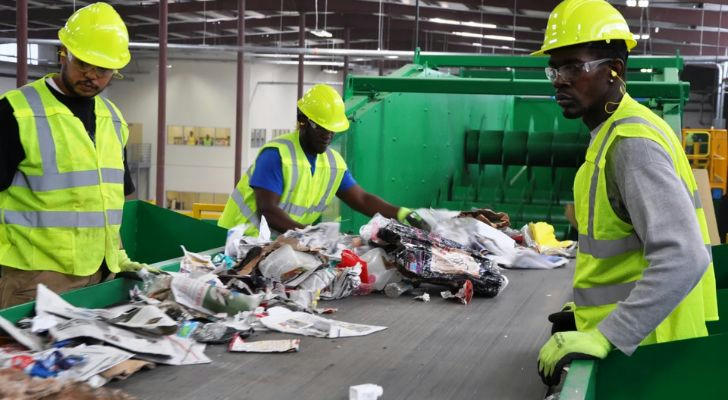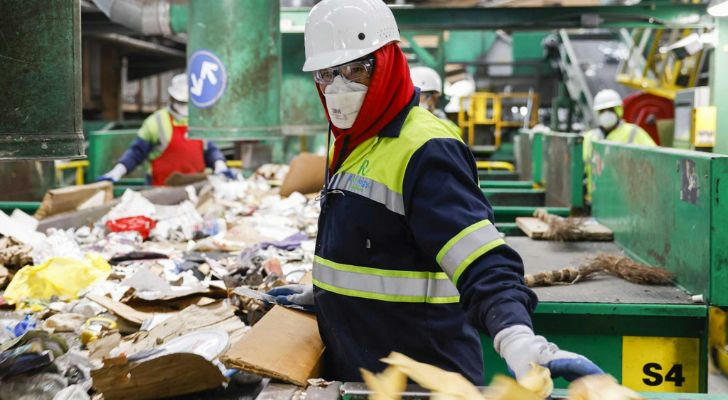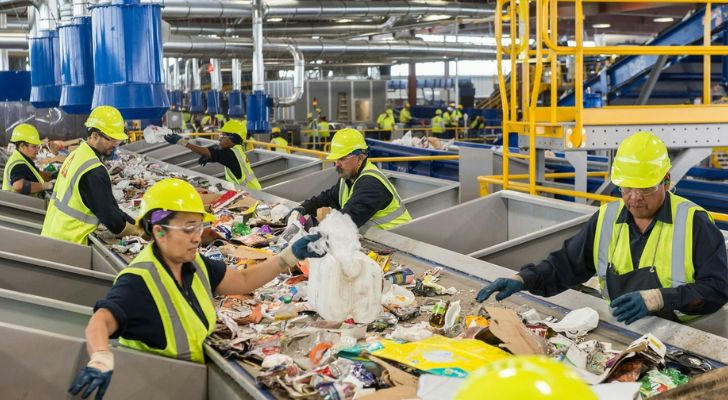Join Our Team: Exciting Opportunities as a Waste Sorter in Germany!

In an era where environmental sustainability is paramount, the role of waste sorters has become increasingly vital. As Germany continues to lead the way in recycling and waste management, there is a growing demand for skilled and dedicated waste sorters. This article highlights the exciting opportunities available for waste sorters in Germany, tailored for individuals aged 25 and above.
The Importance of Waste Sorting
Waste sorting is a critical process that plays a significant role in reducing environmental impact and promoting sustainability. By separating recyclable materials from non-recyclables, waste sorters contribute to the efficient recycling of resources and the reduction of landfill waste.
Environmental Benefits
Proper waste sorting helps reduce greenhouse gas emissions by diverting materials from landfills. Recycling materials such as paper, plastic, glass, and metals conserves natural resources and reduces the energy required to produce new products. This contributes to a cleaner environment and a more sustainable future.
Economic Benefits
Waste sorting also has economic benefits. Recycling industries create jobs and stimulate local economies. By processing recyclable materials, waste sorters help generate revenue and support the growth of recycling businesses. This creates a positive cycle of sustainability and economic development.

Job Opportunities in Waste Sorting
Germany's commitment to environmental sustainability has led to a surge in job opportunities for waste sorters. Various industries and municipalities are actively seeking skilled workers to join their teams.
Municipalities and Local Governments
Local governments and municipalities are responsible for managing waste collection and sorting. They require a workforce that can efficiently sort and process large volumes of waste. This includes separating recyclables, composting organic materials, and managing hazardous waste.
Recycling Facilities
Recycling facilities are another major employer in the waste sorting industry. These facilities specialize in processing recyclable materials and require skilled sorters to ensure the efficient separation of different types of waste. The demand for recycling facilities is expected to grow as more industries adopt sustainable practices.
Private Companies
Private companies involved in waste management and recycling also offer job opportunities for waste sorters. These companies may specialize in specific types of waste, such as e-waste or hazardous materials, and require specialized skills to handle these materials safely and efficiently.
Skills and Requirements
To become a successful waste sorter, certain skills and requirements must be met. These include attention to detail, physical fitness, and a willingness to work in a dynamic environment.
Attention to Detail
Waste sorting requires precise attention to detail. Sorters must be able to identify different types of recyclable materials and separate them accurately. This includes recognizing subtle differences in material composition and ensuring that materials are sorted into the correct categories.
Physical Fitness
The job of a waste sorter can be physically demanding. Workers must be able to lift heavy loads, stand for long periods, and work in various conditions. Good physical health and stamina are essential for performing the tasks required.
Willingness to Learn
The waste sorting industry is constantly evolving with new technologies and methods. A willingness to learn and adapt to these changes is crucial for long-term success. Many facilities offer training programs to help sorters stay up-to-date with the latest practices and safety standards.
Training and Certification
In Germany, becoming a certified waste sorter involves several steps. Training programs are available through various institutions and organizations.

Vocational Training
Vocational schools and training centers offer comprehensive training programs that cover the basics of waste sorting and recycling. These programs typically include both theoretical and practical components, providing students with the necessary skills to excel in the field.
On-the-Job Training
Many facilities offer on-the-job training for new employees. This hands-on approach allows workers to learn directly from experienced sorters and gain practical experience in a real-world setting. On-the-job training is often combined with formal training programs to ensure a well-rounded education.
Career Pathways
The waste sorting industry offers a variety of career pathways, allowing individuals to grow and develop within the field.
Entry-Level Positions
Entry-level positions as waste sorters provide a solid foundation for those new to the industry. These roles offer hands-on experience and the opportunity to learn from experienced workers. With time and dedication, individuals can advance to higher-level positions.
Supervisory Roles
As sorters gain experience, they may have the opportunity to move into supervisory roles. These positions involve overseeing a team of sorters, managing schedules, and ensuring compliance with safety regulations. Supervisors play a crucial role in maintaining efficient operations.
Management Positions
For those looking to take on more responsibility, management positions are available. Managers oversee the entire waste sorting operation, coordinate with other departments, and ensure the smooth running of the facility. This role requires strong leadership skills and a deep understanding of the industry.
Conclusion
Joining the waste sorting industry in Germany offers a rewarding and impactful career path for individuals aged 25 and above. With growing demand, meaningful work, and opportunities for advancement, it is an excellent choice for those committed to environmental sustainability. By acquiring the necessary skills and certifications, you can contribute to a cleaner planet and build a successful career.
